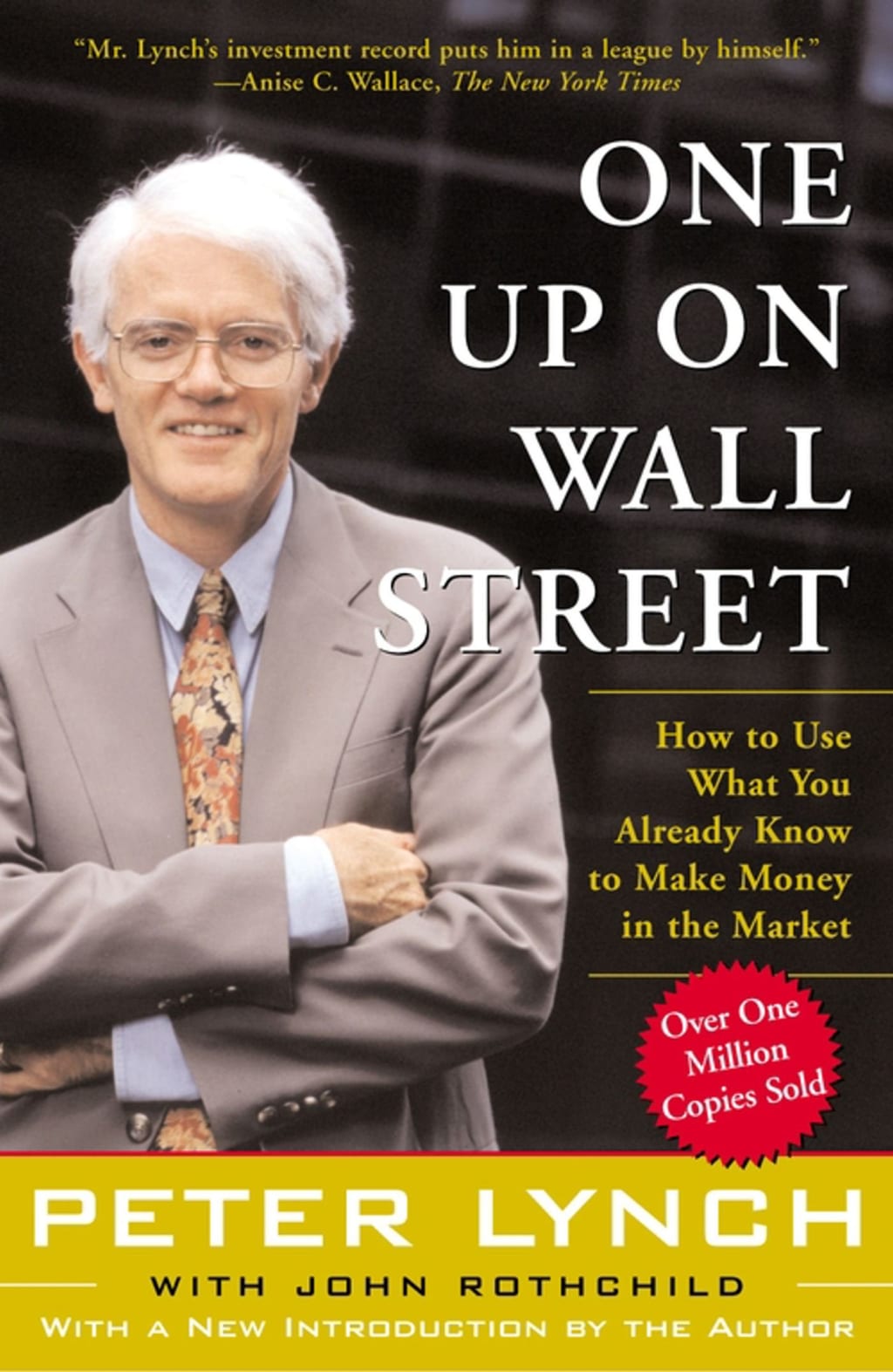One Up on Wall Street-Best book for young investors
One Up on Wall Street-Best book for young investors

Lynch explains his investing style by its broad analogy to cocktail parties and small talk, which inevitably escalates into heated action. Lynch believes that individual investors can seize market opportunities better than Wall Street and encourages investors to invest in what they know. Since the stock market scares many people, this short book helps people understand how they can feel safe while investing.
If you want to learn how to invest, the best starting point is the book "Smart Investor". The Wall Street Journal's Jason Zweig has now updated, "The Intelligent Investor" is a great first book on investing, perfect for anyone who wants to start investing on the go people. But while investing early is important, it is also important to invest wisely.
These five classic investing books can provide young investors with irreplaceable economic and financial insight. These classic investment books can provide tremendous economic and financial information to young investors. This book is the cornerstone of our investment strategy here at MyWallSt, as well as our personal practice in their personal portfolio.
This Standing Advice has become the first bestseller and classic book on investment techniques. His best-selling book One on Wall Street [Penguin Books, Paperback, 1989] details his basic strategy, and the book provides several guidelines for individual investors to implement and apply their methods. His latest book, "Beat the Street" [Fireside/Simon & Schuster, 1994] expands on the theme of his first book and provides examples of his approach to the specific companies and industries in which he invests.
His unique views on how ordinary people view the stock market and his stock selection structure have always been like this. But perhaps most important is the author's unique understanding of how typical investors think, invest, and react. One Up on Wall Street was written in 1989, so don't expect good stock advice from this investment guru. Top Wall Street personalities summarize the knowledge and skills of author Peter Lynch into a coherent investing strategy that ordinary investors can use.
It is written for real beginners as well as investors who have never touched the surface of the investment pool. The good news is that there are many great investment books written specifically for young investors. A list of the best beginner books on investing will teach you everything from investing in value to understanding financial reporting. We have compiled a list of the best investment books to get you thinking like an investor.
Books are one of the best investments because you get the knowledge of the pros for just a few dollars. But this understanding will not be possible unless you are familiar with some investment books that can give you an adequate understanding of the practical implications.
Most investment books say that it's best to use a diversified sector of the entire market, so you don't need to constantly monitor your portfolio. But in some circumstances, you may find yourself alienated from investment opportunities that professional investors don't see. Peter Lynch is one of the most successful stock exchange investors and hedge fund managers of the last century.
Peter Lynch's Approach in Brief Philosophy and Style Investing in a company that has expectations based on the company's growth prospects and where the stock can be purchased at a fair price. An investment book for choosing the right type of investment by evaluating a company's management team. In this book, Peter Lynch gives the reader an initial overview of his investment strategy. Not only has his approach to investing been successfully tested for real-world performance, but he firmly believes that individual investors have a clear advantage over Wall Street and large fund managers when they use their approach.
In this book, he suggests that investors gain diversified stock market positions at a low cost through index funds, which helps them keep more hard-earned money in their pockets.
This encourages investors to keep in mind that they are investing over a long period. According to Lynch, your portfolio can reward you if you invest for the long term. When it comes to distributing that money, Lynch strongly recommends investing in what you know is the right way. However, he notes that most people should buy a home before investing in stocks because they do more research.
He has since retired but transferred his investing knowledge to his books. Peter Lynch's books provide nuggets of wisdom and a solid investment base that anyone can use. His Technical Analysis of the Financial Markets is one of the most digestible TA books, making it one of the best books for aspiring investors looking for a truly broad immersion in the market.
The book covers important investment vehicles, such as stocks, bonds, and real estate mutual funds. The book challenges traditional investing wisdom found in other books, such as the need for an efficient stock market or diversification. If I tried to summarize his investment philosophy in one sentence, I would say it is a modified value investing aimed at high-potential stocks, or ten thousandths, as he likes to call it. In this book, Christopher Meyer distinguishes the legendary packer of 100 bags, meaning that for every dollar invested in stocks, he returns $100.
This is one of the most popular books on Buffett's investing philosophy. In these letters, Buffett shares his thoughts on investing, accounting, management, and finance. Many have argued that the investing philosophy of books is out of date, but I strongly disagree.
Those who read this book hoping to find a way of investing in what dictates the directions will be disappointed, as there is no substitute for developing their own story. This is probably the shortest investment book I have ever read and it can be completed in no time. In this book, author Joel Greenblatt explains the concept of value investing and his approach to choosing profitable stocks for long life in the market.
He is also the author and co-author of several books on investing and trading. Rich Dad Poor Dad is one of the most influential books ever written about investing. But what makes this book one of the best books for aspiring investors is that Collins has created it in such a simple, practical way that you feel like you're talking to your father. While many financial books may sound like tomes and are bogged down in numbers and charts, Morgan Howell's first book is one of the simplest and most recognizable money management books you can find.
Lynch summarized the issues discussed in this book. Now, in a new introduction written exclusively for this issue of Wall Street magazine, Lynch explains his thoughts on the incredible rise in Internet stocks and a list of 20 high-tech winners in the 1990s.





Comments
There are no comments for this story
Be the first to respond and start the conversation.